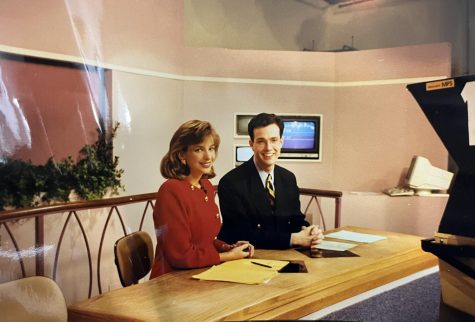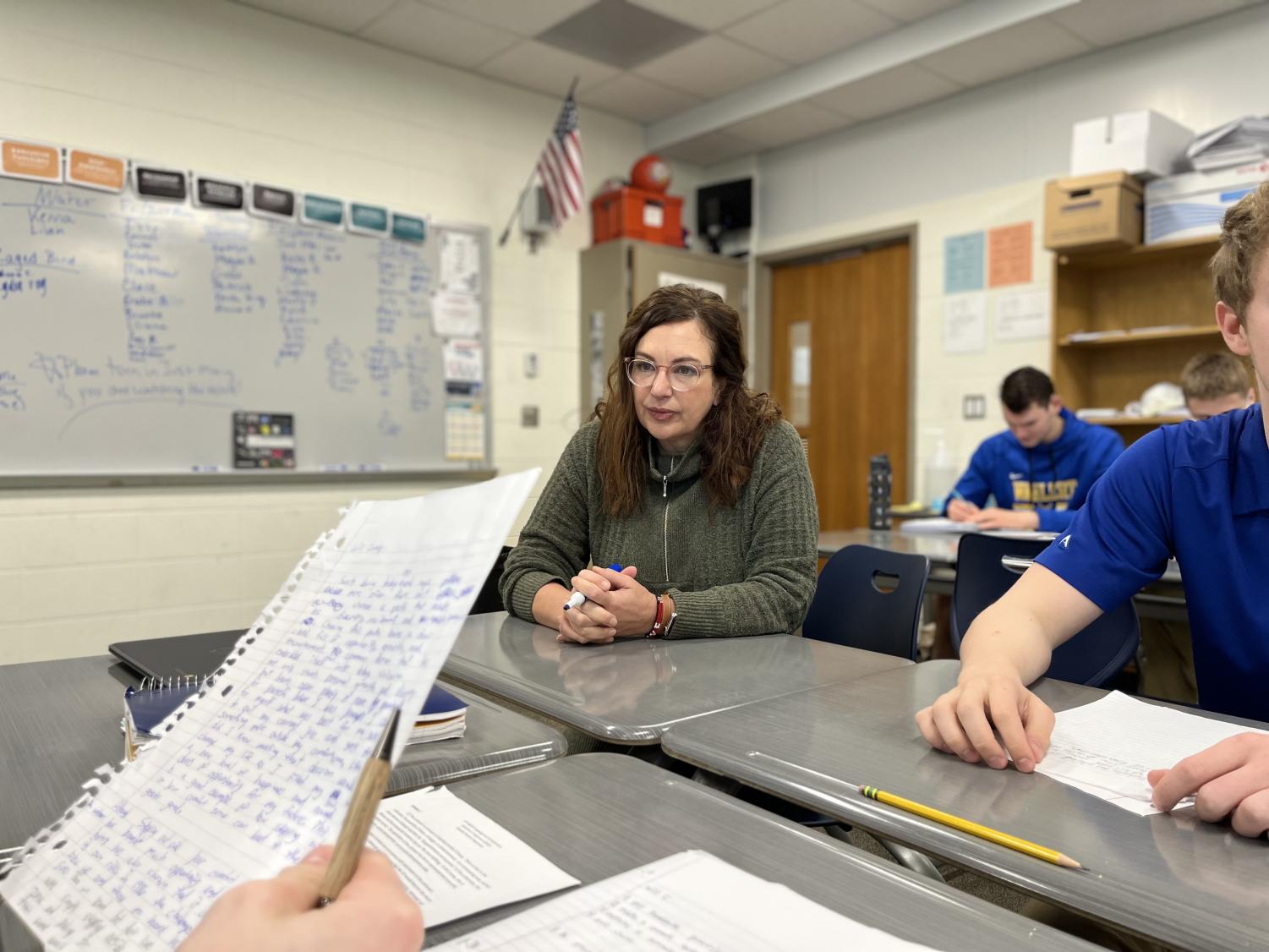Growing writers, readers, and thinkers: a lifelong learner’s path to educating
January 14, 2022
As a teenager, Heather Trees believed her future was onstage. She never expected to be where she is now — teaching at a small Catholic high school in Dubuque, Iowa. Her eagerness to accept new challenges has taken her on a whirlwind journey, and it’s not over yet. Trees reflects on her past experiences and future interests.
Q. How did your interests evolve as a young person?
A. I entered Northwestern University as a theater major. Once I realized that my talent wasn’t enough to make it on Broadway, I became more realistic and looked at other options. For one class, we had to do a monologue. My teacher said afterwards that that was my biggest talent — being myself on stage. She said, “A lot of people go into theater because they like to put on different personas. You’re really comfortable with yourself, so you should look for opportunities to be yourself on a bigger stage.” Shortly after, the radio, television, and film department asked me to anchor their News Broadcast. It started to click that journalism could combine my love of writing, my curiosity about the world, and my interest in performing.

Q. What surprised you upon entering journalism?
A. We mainly see national journalists covering interesting stories and meeting famous people. When you actually break into journalism, it’s very different. My first job was in Dubuque, Iowa, working with one of the smallest television stations in the country. I started way at the bottom of the barrel, working 75-80 hours a week with little pay. I wanted it to be better; at every step, they would give me more responsibilities, and I would take them.
Q. How did your journalism career advance?
A. Luckily, Bakersville, California, showed interest in me. I headed west and became a news reporter at KEROTV. I became the evening news anchor; there were even billboards of me. I was interested in moving up the ladder, and then I got pregnant. I struggled; I lived an hour from the station and worked from about 1 p.m. to 1 a.m. If I couldn’t handle the work while pregnant, I wasn’t sure I could handle it with a child. So I decided to quit. I walked away, and it still makes me a little sad. Being a stay-at-home mom is a privilege, but it felt like I didn’t fulfill my potential in a career I worked hard for.
Q. How did you progress past being a stay-at-home mom?
A. I was a stay-at-home mom until my youngest child went to kindergarten. I looked at the rest of my life and thought, “I’m just done?” My desperation to find something led me to volunteer at my daughter’s school library. Eventually, I told the principal, “I know I’m doing this for free, but I really like it. Could I get a job here?” So I became a part-time associate librarian. I felt like I was making a difference. Once I was immersed in that space, I wanted to have a bigger impact. I realized, “Oh, I need to be a teacher.”
Q. You became a high school English teacher. How did your experience in journalism influence your teaching style?
A. I’m really comfortable sharing parts of myself that other teachers aren’t; part of being a journalist is sharing your own story. I also understand that everyone has a story; that helps me connect with students. The other part of journalism that’s similar to teaching is that every day is different. I’m not going to teach the same books the same way every year. I’m always going to change, and that’s true with journalism, too.
Q. You are considering moving beyond teaching. Where do you hope to concentrate your work?
A. I’m a seeker and life-long learner. I would love to research mentoring and make it more widespread. Most schools have a mentoring program, but it’s only for students that struggle. I think that is so short-sighted. Every student struggles at some point; mentoring is a big help in navigating the difficulties of high school and adolescence. I think that my interest in the psychological wellbeing of my students is growing more than my interest in teaching them about reading and writing.
Q. What impact do you hope to leave on students as you enter the next phase of your life?
A. When you’re young, you think you need to know what you’re going to do and where your life is going to go. If you don’t know, it’s okay. As long as you stay open to possibilities, to change, and to growth, you’re going to have an amazing life. When you do what you love and pay attention to doors opening, then they continue to open for you and provide you a path.
